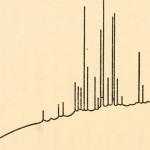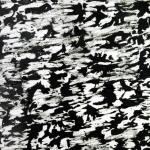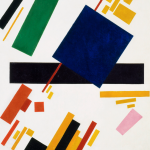“Essential Reading”: A Review of Daniel Punday’s Five Strands of Fictionality
Anthony WardeAnthony Warde traces Daniel Punday's analysis of the intertwining strands of contemporary "fictionality," the different modes - from "myth" to "assemblage" - by which invented stories are legitimated. Punday's work implies that the active construction of 'life-fictions' is becoming more significant in contemporary technoculture, a view that runs counter to the more pessimistic view of agency in Baudrillard's Simulacrum America and other accounts of a wholly 'virtual' reality.
Unworldly Reflections
Stephen DoughertyIn this review of Robert Chodat's Worldly Acts and Sentient Things, Stephen Dougherty argues that Chodat's inquiry could have profited from a deeper engagement with posthumanist thought.
David Shields’ Reality Hunger: A Manifesto: A Review in the Form of a Memoir
Curtis WhiteDavid Shields is hungry, but not hungry enough. So says Curtis White, who argues that by ignoring anti-realism's past and present, Shields writes as if "New York" and "now" are the only contexts that matter.
Cognition Against Narrative: Six Essays on Contemporary Cognitive Fiction
Joseph TabbiIn his introduction to the Cognitive Fictions cluster, Joseph Tabbi suggests that reflexive, non-narrative literature plays a critical role in the new media ecology. Postmodernist writing by Joseph McElroy and Italo Calvino, the posthumanist thought of Cary Wolfe, and the emerging forms of electronic literature each occupy a position between narrative modes of consciousness and "object-oriented" computer and cognitive science.
Phantasmal Fictions
D. Fox HarrellD. Fox Harrell considers how a media theory of the "phantasmal" - mental image and ideological construction - can be used to cover gaps within electronic literary practice and criticism. His perspective is shaped by cognitive semantics and the approach to meaning-making known as "conceptual blending theory."
Fictions of the Visual Cortex
Stephen J. BurnStephen Burn connects Don DeLillo's fifteenth novel, Point Omega, with the author's long-running investigation into the structures of the mind. Using an elusive narrative architecture, images from a slowed-down film, and moments of second- and third-order observation, the novel dramatizes the mind's pre-conscious fiction-making processes.
Liquid Ontology
James J. PulizziIn this review-essay, James J. Pulizzi reads Joseph McElroy's 1977 novel, Plus, as a Bildungsroman for the posthuman: instead of tracing the development of a subject, the novel traces the development of processes that call the very idea of a subject into question. As a human brain adjusts to its new housing in an experimental satellite, the text unfolds in a series of re-entries and re-mappings, an unfolding that necessarily implicates the reader.
Water on Us
Joseph McElroyExcerpted from a forthcoming nonfiction book on water, Joseph McElroy's essay ponders (among other questions) the relationship between the physical waters of the world and brain and the phenomenal waters of the mind. "I meant to ask, 'What has water to say on the subject of us?" - i.e., on its own without prompting? Dumb question, it tells me."
The Binding Problem
Kiki BenzonMinds bind - make coherent meaning from distributed processes - and narratives do, too.
The means by which they do so remains a mystery, however. Kiki Benzon suggests that this mystery is at the heart of Mark Z. Danielewski's House of Leaves, a text whose layered structure, typographical blending, and central metaphor - a house much bigger than the sum of its parts - enact the problem of binding on multiple levels.
Things They Wrote With: The Material Making of Modern Fiction
Joseph ConteIn his new book, Michael Wutz examines how the work of four canonical novelists - Norris, Lowry, Doctorow, and Powers - register the revolutions in 20th century media technology. Such an analysis, reviewer Joseph Conte suggests, is an important extension of Kittlerian media theory to the field of American literature.
Lynne Tillman’s Turbulent Thinking
Eric Dean RasmussenEric Dean Rasmussen explores Lynne Tillman's "cognitive aesthetic," suggesting that her work is powered by the generative disconnect between asignifying affect and signifying emotion. He argues that her 1998 novel, No Lease on Life, examines the role of affectively sustained universal values in responding politically to the neoliberal city.
Being Not Us
John BruniJohn Bruni suggests that Cary Wolfe's new essay collection explores the various cognitive fictions of humanism and carves out a functional role for systems-influenced theory and art.
Man Saved by Wolfe
Neil BadmingtonIn this review of Cary Wolfe's new essay collection, What is Posthumanism?, Neil Badmington reflects on the ebb and flow of "the posthuman" and ponders what Wolfe's work suggests for the future of the field.














